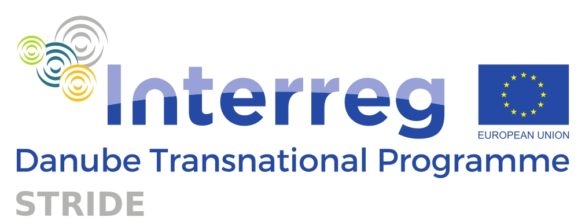STRIDE regional smart grids analyses is finalised
ConPlusUltra is an active partner of the “Stride Improved energy planning through the Integration of Smart Grid concepts in the Danube Region” project. In this context, it has been in charge of overseeing the completion of smart grid analyses. While this process was overseen by ConPlusUltra, Austria, it relied on the input of all the partners who were required to contribute to the analyses with their regional know-how and data. This has resulted in a total of 8 analyses for Slovenia, Germany, Austria, Hungary, Croatia, Bulgaria, the Czech Republic and Bosnia and Herzegovina.
The STRIDE regional smart grids analyses sketch the specific characteristics of each region, highlighting the status of RES and smart grids, providing a SWOT analysis, identifying smart grid potentials as well as focusing on challenges, conclusions, and recommendations regarding smart grids for the given region. Based on three larger reports, these analyses were compressed into executive summaries, allowing for a quick overview of the most important topics.
To give an idea about the analyses, the example of Austria will be presented. For this analysis, the focus lies on the city of Vienna, which boasts an innovative energy supply system that features a variety of plants in the city area (hydro, wind, biomass and waste, solar and conventional). In terms of smart grids, the analysis notes the increase in smart metering capacity and in the number of subsidized storage capacities for PV systems. It adds that by the end of 2022, 95% of Austrian households and businesses will be equipped with a smart meter.
Illustrating the diversity in the Danube region, the analysis of Bosnia and Herzegovina reveals a lower use of smart grids in the country compared to Austria. For the regions selected (Zenica-Doboj Canton and Central Bosnia Canton), the report explains that only 3 electric vehicles were registered, and that only 4 AC charging stations for electric vehicles had been built at the time of writing. In terms of smart meter usage, in 2019, about 11.86% of consumers were using such technologies.
The analyses show that there are substantial differences between regions and that the partner countries are in no means uniform in terms of their short-term smart grid potential. Nevertheless, the cooperation approach of the STRIDE project makes it possible for partners to learn from each other and to allow for knowledge transfer on smart grids in the Danube region. These analyses will form of the backbone of future project activities including the development of Smart Grid Strategies for each region and capacity building activities.
If you are interested in the project, please find more information here: Stride – Improve Energy Security and Energy Efficiency

